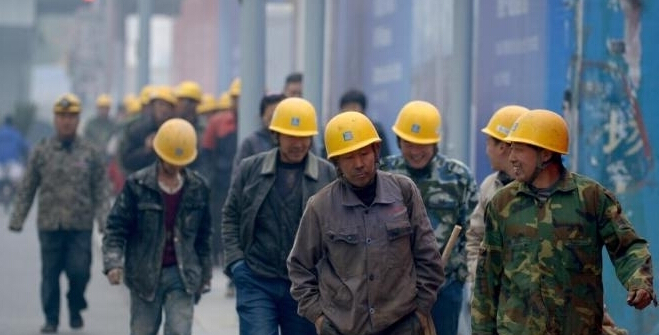Beijing (AFP) - China'sworking-age population continued to fall in 2014, the government said onTuesday, as Beijingstruggles to address a spiralling demographic challenge made worse by its one-child policy.
北京(法新社)——2014年中国的工龄人口数量继续下滑,政府周二说,加上一胎化的不利影响,中国正挣扎于解决这个人口挑战。

Mainland China's total population stood at 1.37billion at the end of 2014, according to the National Bureau of Statistics, an increase of 7.1 million over the end of 2013. It remains the world's largest,although Indiahas been catching up in recent years.
2014年底中国大陆人口为13.7亿人,这是国家统计局的数据,在2013年的基础上增加了710万。尽管印度最近几年在穷追不舍,但是中国依然是世界第一人口大国。
The working-age population -- which China definesas those between the ages of 16 and 59 -- dropped to 915.8 million last year,the NBS said, down 3.7 million from the end of 2013.
中国将工龄人口定义为16到59岁之间的人口,去年该部分人口下降到9.158亿,比2013年下降了370万。
The population aged 60 and over, by contrast, rose by more than 10 million to 212.4 million, or 15.5 percent of thetotal population.
而60岁或者以上的人口则增长了1000多万人,达到2.124亿人,或者说总人口的15.5%。
Projections show that one in four of the population -- or 350 million Chinese -- will be aged 60 or older by 2030,compared with just five percent as late as 1982.
据估计,四分之一人口或者说3.5亿中国人在2030年时将达到60岁或者更老,而在1982年时这部分人口只占5%。













